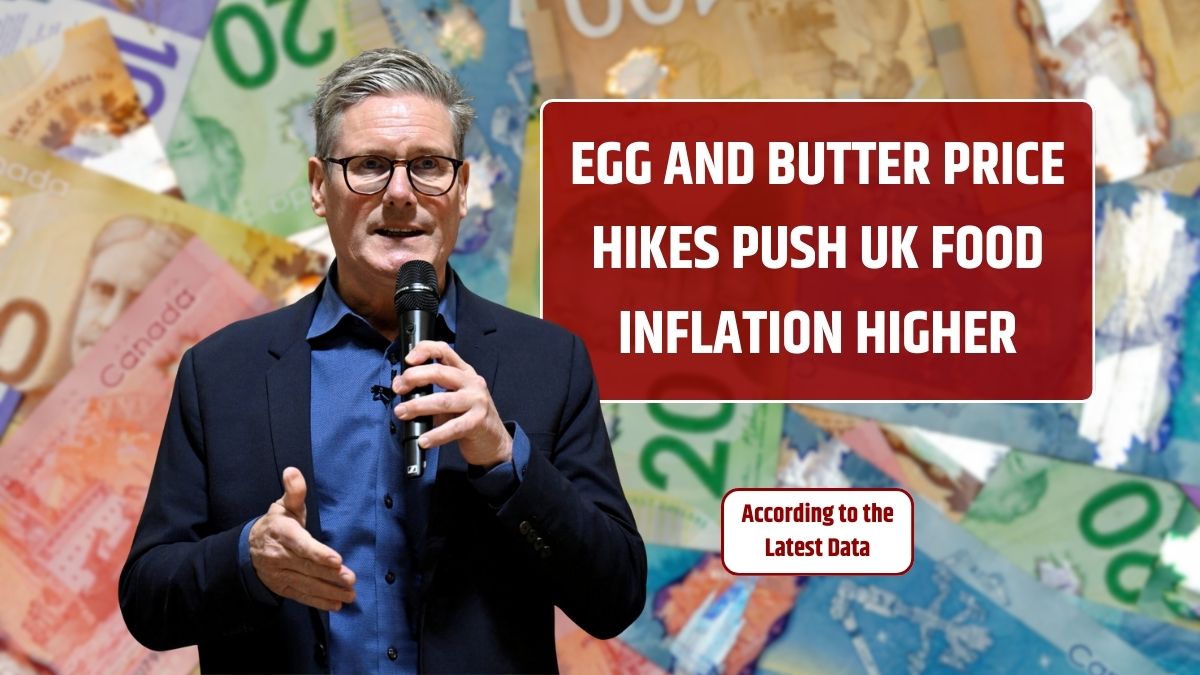UK households are feeling the pressure once again as grocery staples like eggs and butter jump in price, driving up food inflation to levels not seen since early 2024. With families already grappling with rising energy bills and an unstable economy, the recent spike in essential food costs signals a tougher season ahead.
Table of Contents
Prices
According to the latest data from the British Retail Consortium (BRC), food inflation rose to 4.2% this month—up from 4% in July and marking the highest rate since February 2024.
While non-food products dropped by 0.8%, overall shop price inflation still crept up to 0.9%. For many, this increase feels like yet another squeeze on already tight household budgets.
Helen Dickinson, chief executive of the BRC, explained that the main culprits behind the surge are eggs, butter, and chocolate. These staples are becoming more expensive due to a mix of high demand, limited supply, and growing labour costs.
Causes
Several global and domestic factors are driving up costs:
- Labour costs are rising across the retail sector
- Global cocoa prices are surging due to poor harvests, impacting chocolate
- Droughts in southern Europe have made fruit and vegetables more expensive
- Retailers are absorbing some of the costs, but can only do so much
Mike Watkins of NIQ noted that this latest price increase also reflects the end of seasonal promotions tied to events like the summer holidays and sporting tournaments. With families returning from summer break, many may be forced to re-evaluate their monthly spending.
Wages
The retail industry is also under financial strain due to policy changes. Last year’s autumn budget introduced higher national insurance contributions and increased the minimum wage.
Retailers are now facing an additional £7 billion in costs. In response, over 60 retail bosses—including major names like Tesco, Sainsbury’s, and Boots—have warned Chancellor Rachel Reeves not to increase taxes again in the upcoming autumn budget.
They argue that higher taxes could undermine the government’s goal of improving living standards, especially as inflation continues to impact consumer spending.
Inflation
Food isn’t the only thing rising in price. The Office for National Statistics (ONS) reported that consumer price index (CPI) inflation hit 3.8% in July—up from 3.6% in June.
It’s the tenth month in a row that inflation has remained above the Bank of England’s 2% target. Key food items like beef, coffee, orange juice, and chocolate saw some of the biggest year-over-year increases.
Food and non-alcoholic beverages went up 4.9% in the 12 months to July, compared with 4.5% in the previous period. Droughts in Spain, Italy, and Portugal have played a big part, raising the cost of fresh produce that the UK heavily relies on.
Energy
Adding to the squeeze, energy prices are also set to rise. Ofgem, the UK’s energy regulator, is expected to announce a 1% increase to the energy price cap in October.
Cornwall Insight predicts that the new cap will raise annual dual-fuel energy bills to £1,737—up from £1,720. While the rise may seem small, it comes at a time when millions of households are already struggling.
Simon Francis from the End Fuel Poverty Coalition said energy costs are now 67% higher than they were during the winter of 2020–21.
The group estimates that 12.1 million households are currently struggling with their bills and warns that even minor price hikes could push many into crisis.
Strain
As food and energy prices both climb, the cost of living crisis shows no sign of easing. For many, these price hikes aren’t just numbers—they’re the difference between heating a home, buying groceries, or falling into debt.
Retailers, economists, and charities are calling for stronger government action to ease the pressure. But as it stands, millions of UK households are bracing for yet another difficult winter.

